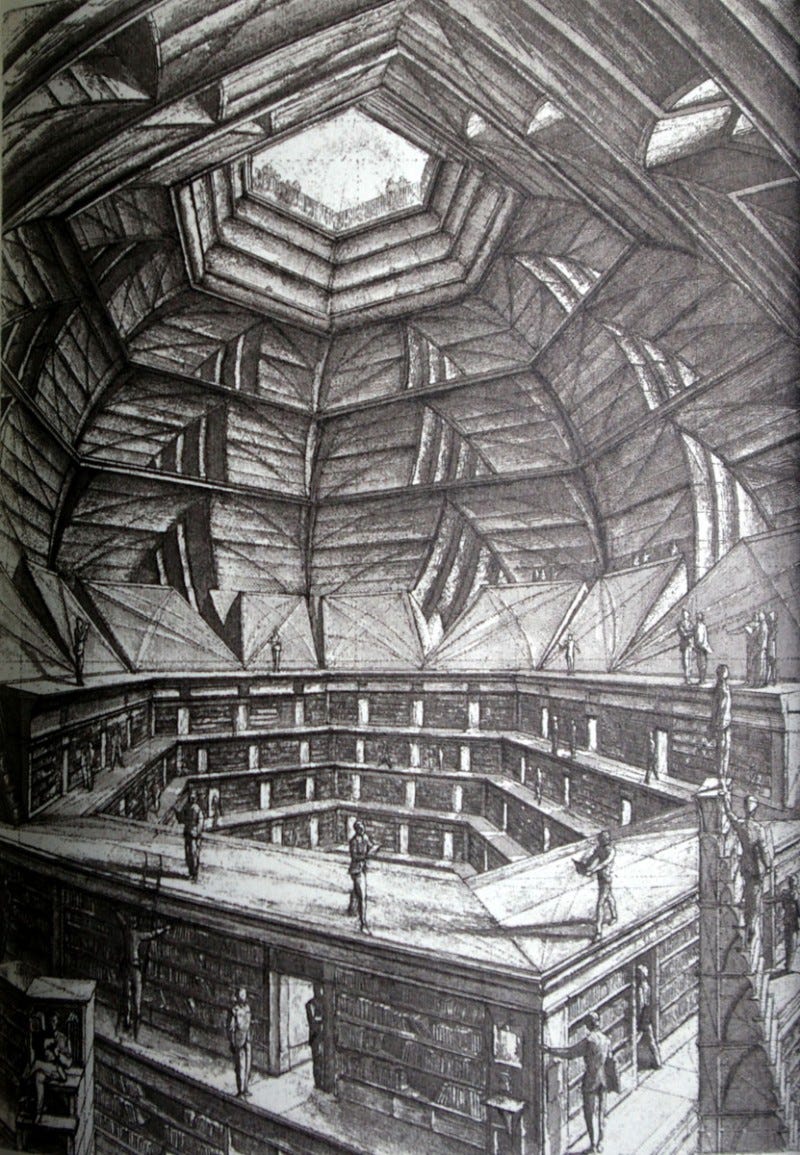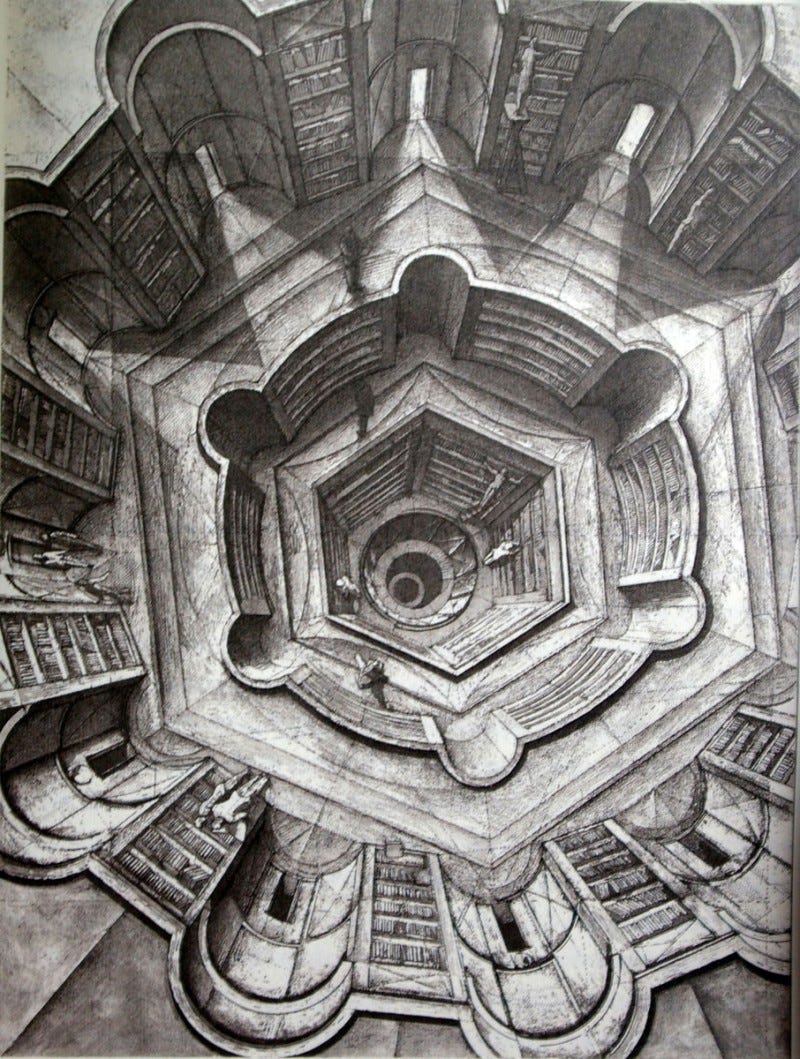Information Wants To Be Infinite
The second essay in a short series on Harvesting Meaning Out Of Chaos
The Mirage of Access - Why Information Alone Is Insufficient
"Information wants to be free," became the rallying cry of early cyber-utopians who believed access alone would transform society. Three decades into this experiment, we face a sobering reality: information, even vast amounts of it, does not automatically lead to understanding, wisdom, or truth.
Tim Berners-Lee, creator of the World Wide Web, dreamed of "a common information space in which we communicate by sharing information."
Yet instead of a unified public sphere, we've witnessed the fragmentation of discourse into increasingly isolated information environments. Eli Pariser’s concept of the ‘filter bubble’ highlights how personalisation algorithms reinforce existing beliefs.

As Jaron Lanier argues:
"When you remove the scarcity of publication, you don't get paradise... you get a cacophony where the loudest and most depraved voice becomes the only one that's reliable enough to orient everyone."
A crucial missing element is time – the space needed to process and integrate information into knowledge.
Information without reflection produces not knowledge but a kind of amnesia, where the latest information continuously overwrites what came before without meaningful integration.
Attention Bankruptcy
Underlying these challenges is a biological reality: human cognitive capacity is finite and relatively fixed, while information volume grows exponentially. This creates what might be called "attention bankruptcy" - a state where our cognitive resources are inadequate to the demands placed upon them.
Information must be processed, contextualised, evaluated, and integrated to become knowledge. Knowledge must be applied, tested, and reflected upon to approach wisdom. Wisdom is embodied and intuitive, guiding us through a sense of integrity.
Industrial Values in a Post-Industrial World
Our modern institutions still run on industrial‑era values. Efficiency trumps reflection. Metrics measure output rather than insight. Standardisation and mass production are celebrated as progress.
Knowledge became a product line, with texts manufactured to precise specifications - page counts, word counts, footnotes. Universities rewarded publication volume over depth. Scholars competed for grant money by promising ever larger scales of research. Even journalism turned into an assembly‑line process of clickbait headlines and recycled press releases.
This approach undervalues interpretation, nuance, and synthesis. More intuitive types, such as poets and philosophers, became side‑acts to the main show of data collection and algorithmic analysis. Humanities departments shrank while STEM fields expanded. The very skills that help us discern patterns and build coherent narratives - close reading, metaphor, analogical thinking - were cast as quaint relics of a less efficient age.
Confronted with information abundance, these values misfire; efficiency alone creates noise, not clarity, deepening the crisis of meaning.
Craftsmanship in curation treats each piece of information as a seed of insight, valuing the patient work of tracing ideas, uncovering patterns, highlighting marginal voices, and mapping contradictions rather than scoring ‘engagement’.
These qualities resist left-brain automated measurement. They thrive in the human mind’s messy borderlands, where intuition and feeling matter. They demand trust in our capacity to judge what truly matters - a radical shift from trusting only what “goes viral” or “earns citations.”
Revaluing these skills requires new incentives: universities rewarding curation over novelty, news organisations investing in in-depth context, and tech designers prioritising slow exploration over instant feeds.
This realignment demands conscious design of educational, professional, and technological systems centred on meaning‑making, transforming information overload into fertile ground for understanding.
The Need for New Navigation Tools
We began by wandering Borges’ infinite library, only to discover that more information can leave us more lost than ever. Then we saw how deliberate confusion - Bannon’s tactic of “flooding the zone,” Dugin’s weaponised relativism and attention‑hijacking algorithms - has turned our digital commons into battlegrounds of competing realities. Endless search results and filter bubbles hollow out rather than enrich our understanding. Finally, we exposed how industrial‑era values of scale, speed and uniformity have relegated nuance, reflection and synthesis to the margins.
This isn’t a technical glitch solved by faster servers. It’s a crisis of meaning: our failure to turn facts into context, data into narrative, and information into wisdom. When every claim is equal, trust collapses. When every detail drowns in noise, insight vanishes.
By shifting our priorities, can we rebuild what was lost? Learn once again to read deeply, to trace ideas across disciplines, to hold time for reflection? We can become curators of meaning rather than mere consumers of content.
In the next essay, “The Curator’s Compass,” I will explore practical ways to navigate these information oceans. I’ll look at emerging tools and practices - from human‑AI collaborations to personal knowledge systems, including the ones that I personally use - that can help us select what matters, connect what seems unrelated, and frame narratives that speak truth. These are the new compass points for an age when meaning is our scarcest resource.
If we can master the art of curation, we might at last turn the tide on chaos and reclaim the wisdom hidden beneath our digital deluge.

Transparency notice! This essay was co-written using various large language models and system prompts from a basis of my original thoughts. It was then edited again by me to hone it into exactly what I wanted to say. Please see this previous essay for more details on this approach to ‘collaboration with a non-human intelligence’:



